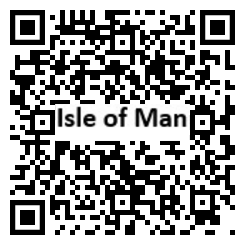Country Summary




Introduction
Background
Part of the Norwegian Kingdom of the Hebrides until the 13th century when it was ceded to Scotland, the isle came under the British crown in 1765. The Isle of Man is a British Crown dependency, which makes it a self-governing possession of the British Crown that is not part of the UK. The UK Government remains constitutionally responsible for its defense and international representation.
Geography
Area
total: 572 sq km
land: 572 sq km
water: 0 sq km
Climate
temperate; cool summers and mild winters; overcast about a third of the time
Natural resources
none
People and Society
Population
91,382 (2022 est.)
Ethnic groups
White 94.7%, Asian 3.1%, Mixed 1%, Black 0.6%, other 0.4% (2021 est.)
Languages
English, Manx Gaelic (about 2% of the population has some knowledge)
Religions
Christian 54.7%, Muslim 0.5%, Buddhist 0.5%, Hindu 0.4%, Jewish 0.2%, none 43.8% (2021 est.)
Population growth rate
0.52% (2022 est.)
Government
Government type
parliamentary democracy (Tynwald)
Capital
name: Douglas
Executive branch
chief of state: Lord of Mann King CHARLES III (since 8 September 2022); represented by Lieutenant Governor Sir John LORIMER (since 29 September 2021)
head of government: Chief Minister Alfred CANNAN (since 12 October 2021)
Legislative branch
description: bicameral Tynwald or the High Court of Tynwald consists of:
Legislative Council (11 seats; includes the President of Tynwald, 2 ex-officio members - the Lord Bishop of Sodor and Man and the attorney general (non-voting) - and 8 members indirectly elected by the House of Keys with renewal of 4 members every 2 years; elected members serve 4-year terms)
House of Keys (24 seats; 2 members directly elected by simple majority vote from 12 constituencies to serve 5-year terms)
Economy
Economic overview
high-income British island economy; known financial services and tourism industries; taxation incentives for technology and financial firms to operate; historic fishing and agriculture industries are declining; major online gambling and film industry locale
Real GDP (purchasing power parity)
$6.792 billion (2015 est.)
Real GDP per capita
$84,600 (2014 est.)
Agricultural products
cereals, vegetables; cattle, sheep, pigs, poultry
Industries
financial services, light manufacturing, tourism
Exports - commodities
tweeds, herring, processed shellfish, beef, lamb
Imports - commodities
timber, fertilizers, fish
Exchange rates
Manx pounds (IMP) per US dollar -
Page last updated: Monday, September 12, 2022
